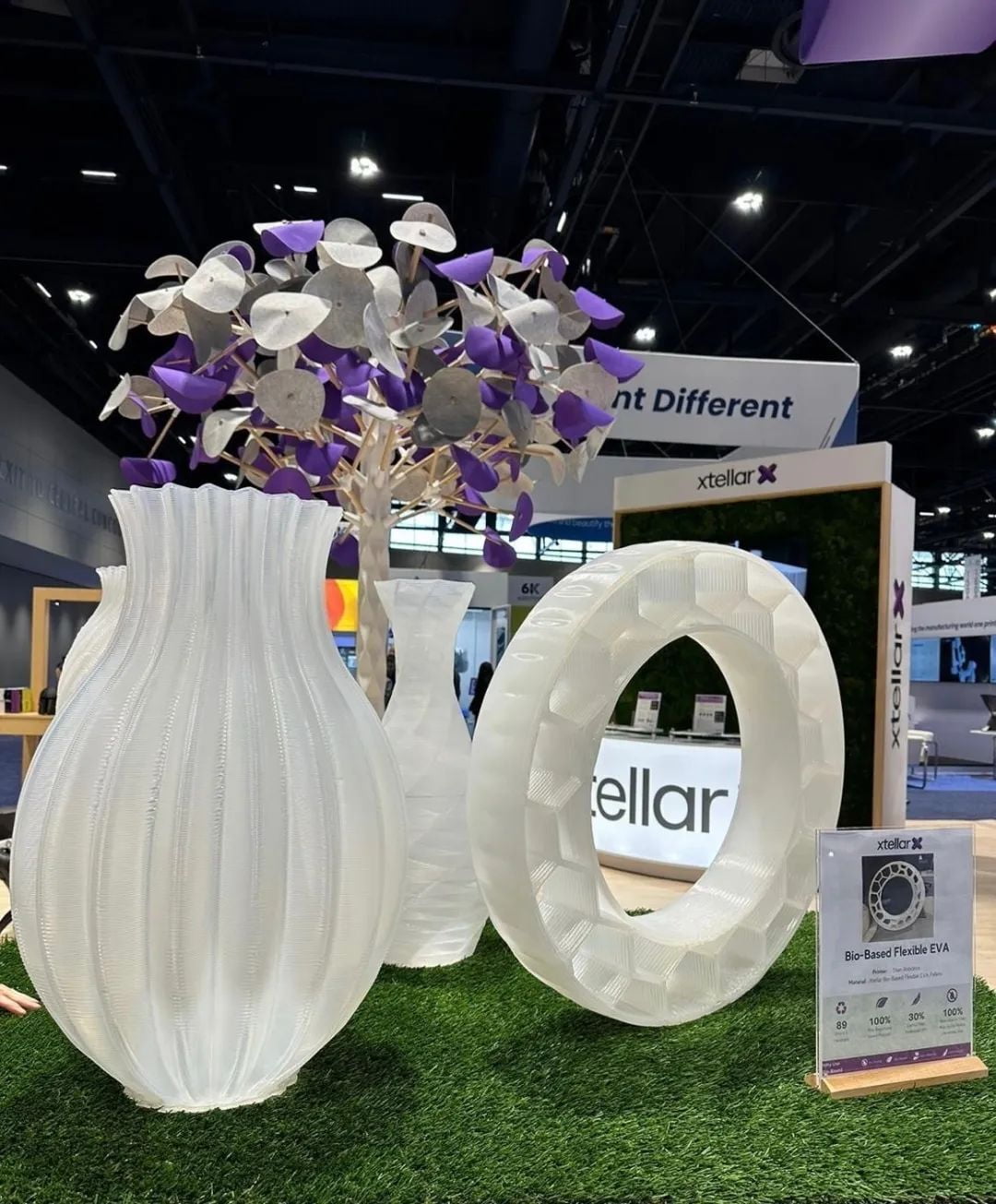Xtellar, a market leader in 3D printing materials innovation, was formed by the merger of Braskem's 3D Materials division and Taulman3D to introduce the industry's first large format 3D printing technology. Recently, Xtellar introduced bio-based EVA pellets, which bring flexibility and sustainability to a wide range of pellet-compatible large format 3D printers.
EVA is a transparent, moisture-absorbent, amorphous elastomeric material.Xtellar's unique EVA formulation is bio-based and derived from sustainable sugar cane feedstock.

Bio-based polymers
Xtellar's range of bio-based polymers for 3D printing offers a new direction in sustainable solutions for additive manufacturing.
These eco-friendly materials are derived from sustainable sugarcane feedstock and have a lower carbon footprint than traditional fossil energy materials.Xtellar bio-based 3D printing pellets hold their own in terms of sustainability, quality and functionality.
Jason Vagnozzi, CEO of Xtellar, said, "Bringing a wider variety of sustainable material choices to 3D printing is one of Xtellar's core missions.In 2022, we introduced the industry's first biobased polyethylene and flexible EVA 3D printing filaments, and this year, we continued our mission by introducing the first large-format 3D printing applications specifically formulated with flexible bio-based EVA pellets."
Bio-based EVA pellets
Xtellar's bio-based EVA pellets are the industry's first sustainable flexible material derived from sugar cane feedstock. This formulation offers a sustainable alternative to the traditional flexible TPE and TPU materials currently on the market.Xtellar's eco-friendly formulation is in granular form and uniquely combines sustainability, flexibility, malleability, light weight and moisture resistance.
This material is an excellent sustainable alternative to many of the traditional TPU materials currently used in additive manufacturing and reaffirms our commitment to a more circular, carbon-neutral future," said Jason Vagnozzi. We are very excited about this latest addition to our portfolio and will continue to innovate more sustainable options to meet our customers' growing demand for more sustainable 3D material alternatives."
Main test specifications:
Shore hardness 89A
Light weight: density 0.94g/cm3
300% elongation in XY direction
100% bio-based polymer made from raw sugar cane
Hydrophobic material: no drying required
Glass transition temperature: -36°C (ideal for cold climates)
Opacity and hardness can be controlled by external cooling
Applications:
Automotive, Marine, Aerospace, Consumer Goods, Industrial
Sustainable alternatives to existing TPUs and TPEs on the market
Applications requiring high toughness/durability

